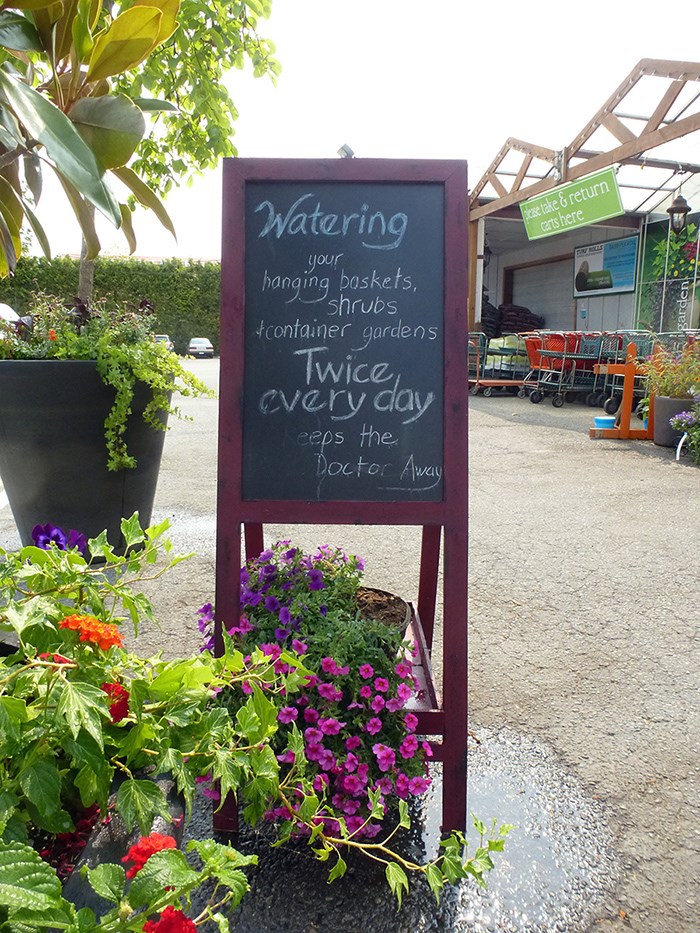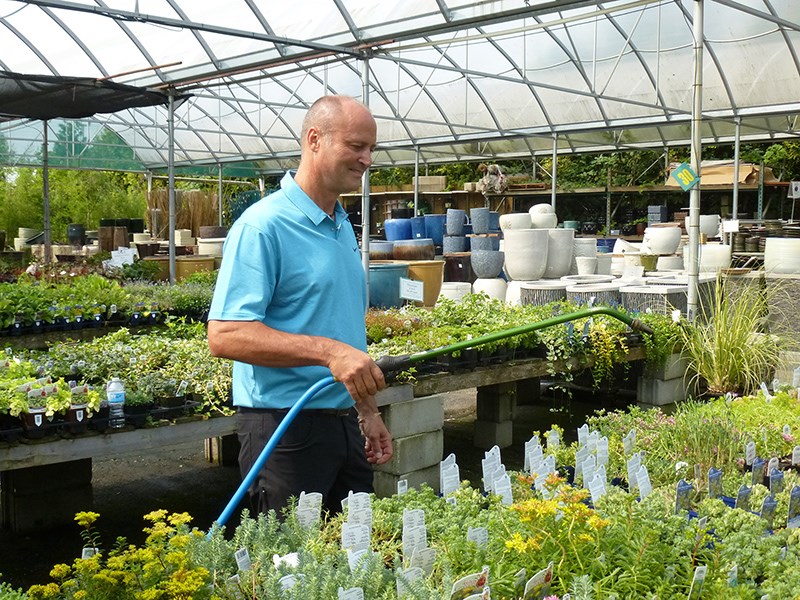Local gardeners may soon be switching to more drought-tolerant plants after this year's dry spring and sweltering early start to the summer, predicts Wim Vander Zalm.
The owner of Art Knapp Plantland says customers at his Port Coquitlam store have been asking for plants to beat the heat.
His recommendations? Succulents, first, because they retain water; and grasses, second, because they don't lose as much moisture as do broad-leafed plants through transpiration.
"Succulents will live 10 times longer than other plants without water," Vander Zalm explained, pointing to the tiny leaves that are plump with water.
The long dry spell is unusual and Vander Zalm said he's concerned about the damage the current drought will have on traditional west coast favourites such as rhododendrons and camellias.
Street trees could also suffer if the dry spell continues.
"There could be a lot of plant death," said the long-time West Coast resident.

As the owner of an agricultural business, Vander Zalm doesn't have to curb water use like other homeowners and businesses, and he's watering up to three times a day to keep plants in top condition. But hand watering two times a day will suffice for most plants, said Vander Zalm and he also recommends mulch as well and enriched soil to keep plants healthy.
Vander Zalm is also a local expert on chafer beetles, a lawn pest that attracted crows, raccoons and other creatures that ruined parks, fields and yards across the Lower Mainland this year. He's working with an entomologist and a lab to raise the best type of nematodes to fight the critters.
The most effective for chafer beetle infestation are a blend of those that burrow into the soil and those that "search and destroy" the larvae. Vander Zalm says nematodes that are raised in the larvae are the most successful killers because they are most "attuned to the host."
"Every year we get a little better because we learn a little more," he said.
People who have ordered nematodes will soon be getting calls to pick up the tiny worms that kill chafer beetle larvae without harming the soil. For a video on how to apply them, visit youtube.com on the City of Coquitlam's channel.
WATER RULES
Last week, Metro Vancouver imposed stage 2 water restrictions to reduce water consumption.
The tougher restrictions mean only once a week sprinkling of lawns is allowed — Mondays from 4-9 a.m. for even numbered houses, and Thursday mornings for odd-numbered addresses.
Hand watering of flowers, vegetable gardens and trees is still allowed. Also, houses with permits for water when applying nematodes to get rid of chafer beetles can still go ahead and water as required for the application to be successful. Pressure washing is not allowed.



